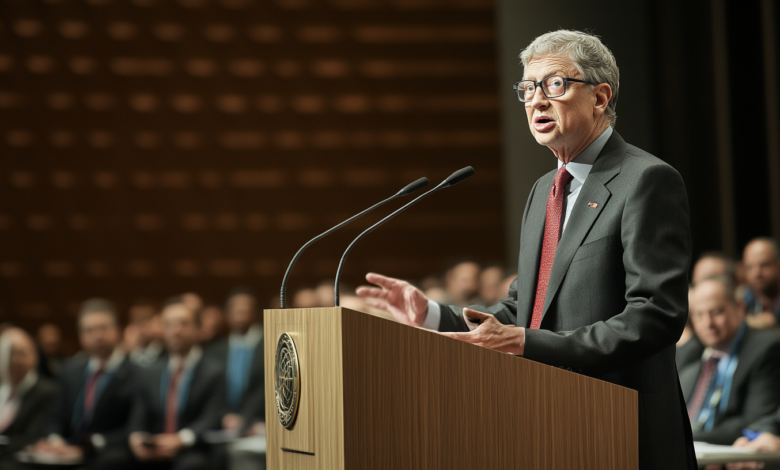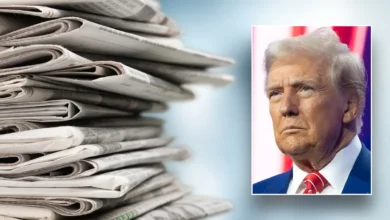Who is the Most Powerful Doctor in the World?

Introduction to Medical Power
The concept of power in the medical field is multifaceted and encompasses various dimensions such as influence, expertise, and authority. Each of these aspects plays a critical role in shaping the practice of medicine globally. Medical power can be observed in different sectors, including research, clinical practice, public health, and health policy. Understanding who is the most powerful doctor in the world involves analyzing these aspects of power and identifying the individuals who stand out due to their impact on the field.
Influence is a significant factor in establishing medical power. It pertains to a doctor’s ability to sway opinions, inspire confidence, and enact change within the healthcare system. Influential physicians often hold leadership roles in prestigious institutions, where their decisions can affect countless patients and healthcare policies. For instance, specialists who provide groundbreaking treatments or researchers who develop innovative medical technologies often find themselves in positions of substantial influence.
Expertise, another crucial aspect, refers to the advanced knowledge and skills a doctor obtains through extensive education, training, and experience. Doctors who excel in their fields are often regarded as authorities and their opinions and diagnoses carry great weight within the medical community. Furthermore, these physicians may contribute to developing medical guidelines or innovative practices that redefine standards in the industry.
In addition to influence and expertise, authority is paramount in determining medical power. This includes the formal recognition and respect a doctor commands within the medical community and society at large. Authority can stem from various sources, including academic credentials, leadership positions, and accolades received throughout a physician’s career.
By exploring the interplay of these factors, we can better understand how they contribute to identifying who is the most powerful doctor in the world and the far-reaching impact that powerful doctors have on healthcare at large.
Understanding the Criteria for Power in Medicine
The concept of power within the medical field can be nuanced and multifaceted. When considering who is the most powerful doctor in the world, various criteria come into play. Clinical expertise serves as a foundational element in this evaluation. A physician’s depth of knowledge and practical skills in diagnosing, treating, and managing complex medical conditions greatly influences their standing. The most powerful doctors often are recognized leaders in their specific specialties, where advanced training and years of experience facilitate exceptional patient outcomes.
Another significant criterion is the contribution to medical research. Doctors who spearhead groundbreaking studies or innovative therapies often redefine treatment protocols and improve healthcare practices globally. This research not only informs clinical guidelines but also plays a pivotal role in shaping medical education, thus extending their impact beyond individual patient interactions to the broader medical community.
The influence of a doctor on healthcare policies also plays a vital role in defining power in medicine. This can be evident in physicians who hold positions within health organizations, governmental bodies, or influential committees where key decisions regarding public health initiatives are made. Their ability to advocate for crucial health reforms can lead to lasting changes, ultimately affecting millions of lives.
Moreover, the role of global health organizations cannot be overlooked. Doctors who collaborate with entities such as the World Health Organization (WHO) or the Centers for Disease Control and Prevention (CDC) wield significant influence in matters of worldwide health. They often lead efforts to combat epidemics, implement vaccination programs, or address pressing health crises, further solidifying their status as powerful figures in medicine.
In summary, the power of a doctor is determined by a combination of their clinical expertise, contributions to research, policy influence, and global health initiatives, all of which contribute to their prominence in the medical landscape.
Major Contenders in the Medical Field
The medical field is populated with numerous influential figures whose contributions have significantly shaped healthcare and medical practice on a global scale. Among these, a few stand out as contenders for the title of the most powerful doctor in the world due to their remarkable achievements, pioneering research, and leadership roles in public health. One of the most noteworthy figures is Dr. Anthony Fauci, a prominent immunologist and director of the National Institute of Allergy and Infectious Diseases (NIAID) in the United States. His expertise in infectious diseases has made him a leading voice during public health crises, including the HIV/AIDS pandemic and, more recently, the COVID-19 pandemic.
Another significant contender is Dr. Tedros Adhanom Ghebreyesus, the Director-General of the World Health Organization (WHO). His role in orchestrating global health responses, particularly during emergencies like the Ebola crisis and the ongoing COVID-19 pandemic, has established him as a powerful figure in international medicine. Dr. Tedros advocates for universal health coverage and health equity, emphasizing the need for effective healthcare systems worldwide.
Additionally, Dr. Paul Farmer, co-founder of Partners In Health, has been acclaimed for his relentless effort to provide healthcare to impoverished communities around the globe. His work in Haiti, Rwanda, and beyond underscores the importance of social justice in healthcare, elevating the discussion of who is the most powerful doctor in the world beyond clinical achievements to include advocacy for underserved populations.
Lastly, Dr. Francis Collins, former director of the National Institutes of Health (NIH), has made remarkable contributions to genetics and personalized medicine, most notably his leadership in the Human Genome Project. Each of these professionals exemplifies the diverse landscape of medicine, showcasing that power in the medical field can manifest in various forms, from research and policy implementation to grassroots activism.
Case Study: A Pioneering Medical Leader
Among the prestigious figures in modern medicine, Dr. Paul Farmer stands out as one of the most powerful doctors in the world. Renowned for his significant contributions to global health, Dr. Farmer co-founded Partners In Health (PIH), an organization focused on providing high-quality health care to impoverished communities. His approach integrates compassionate care with a commitment to social justice, which has transformed health outcomes in several developing countries.
Dr. Farmer, born in 1959 in Massachusetts, pursued his undergraduate studies at Harvard University and later earned his medical degree from Harvard Medical School. His earlier experiences in impoverished regions, particularly those influenced by the historical context of Haiti, became the catalyst for his lifelong mission. Through PIH, he and his team tackled complex health issues including tuberculosis, HIV/AIDS, and Ebola, often operating in settings that are under-resourced and overlooked by conventional healthcare systems.
What makes Dr. Farmer an extraordinary medical leader is not merely his clinical acumen but his innovative approach to healthcare delivery. He emphasizes the need for systemic change alongside medical interventions. This philosophy has won him immense respect and authority among peers, patients, and communities. By advocating for social determinants of health and equitable access to medical services, he has positioned himself not only as a physician but also as a powerful advocate for policy change and health reform at global forums.
His work exemplifies how one individual can influence both healthcare practice and policy. Dr. Farmer’s dedication to addressing the fundamental issues of poverty and health disparities marks his legacy as one of the most powerful doctors in the world, inspiring a new generation of healthcare providers to view medicine through a humanitarian lens.
The Role of Medical Organizations and Their Leaders
Medical organizations play an essential role in shaping global health policies and responses to health crises. Organizations such as the World Health Organization (WHO) and the Centers for Disease Control and Prevention (CDC) are not only influential in their own countries but also have a significant global outreach. The leaders of these organizations wield considerable power, impacting public health through strategic decision-making, mobilization of resources, and global collaboration.
The authority of these leaders is manifested during health emergencies, such as pandemics or disease outbreaks. For instance, during the COVID-19 pandemic, the WHO’s Director-General emerged as a key figure, making pivotal recommendations that guided international responses. These decisions directly affect governments’ actions, healthcare systems, and the general public’s behavior. The powerful positions held by such leaders render them critically important in determining how effectively nations can respond to crises, showcasing a tangible aspect of who is the most powerful doctor in the world.
Moreover, the ability of these figures to gather and disseminate information is crucial in managing public health threats. They serve as central figures in communication strategies, ensuring that accurate, evidence-based information reaches health professionals and the public. Resource mobilization also falls under their purview, as they are often the ones advocating for funding, research initiatives, and collaborations with other sectors, including private enterprises and non-governmental organizations.
Ultimately, the influence of medical organization leaders transcends their titles, allowing them to guide and shape health policies on a global scale. While many doctors contribute to healthcare efforts worldwide, understanding the roles of these leaders highlights key individuals in identifying who is the most powerful doctor in the world, through impactful leadership and decisive actions during critical health scenarios.
Impact of Technology and Innovation in Medicine
The landscape of medicine has undergone significant transformations due to rapid advancements in technology and innovation. Healthcare professionals are increasingly leveraging technological tools to enhance patient care, improve diagnostics, and streamline treatment processes, thereby providing a wealth of knowledge and skills that define who is the most powerful doctor in the world today. The integration of telemedicine, artificial intelligence, and data analytics into everyday practice has empowered physicians to make informed decisions swiftly.
Telemedicine, for instance, has revolutionized patient access to care by removing geographical barriers. This innovation enables doctors to consult and treat patients remotely, ensuring that individuals in rural or underserved areas receive essential healthcare services. Such capabilities highlight the importance of physicians who harness technology proficiently to benefit their patients, reinforcing their influence and stature in the medical community.
Moreover, artificial intelligence is reshaping diagnostic accuracy and efficiency. AI algorithms can analyze vast datasets to identify patterns that a human eye might miss, ultimately leading to more effective treatment plans. This technological tool not only empowers doctors to make evidence-based decisions but also enhances the overall patient experience. The medical professionals who embrace and implement these innovations effectively position themselves as leaders, enhancing their reputation and impact on global healthcare.
Additionally, advancements in wearable technology and health monitoring devices play a pivotal role in patient treatment plans. They facilitate real-time data collection, allowing doctors to maintain continuous oversight of patients’ health metrics. Such proactive engagement enables timely interventions, improving health outcomes significantly. All these factors contribute to defining who is considered the most powerful doctor in the world, showcasing a blend of traditional medical expertise and cutting-edge technology that shapes the future of medical practice.
Influence Beyond the Clinic: Advocacy and Policy Impact
In recent years, the role of physicians has evolved significantly beyond the confines of clinical practice. Many doctors are stepping into the realm of advocacy, influencing health policy and public health initiatives at local, national, and global levels. This shift demonstrates that, while physicians are undeniably health experts focused on patient care, they also bear the responsibility to address systemic issues affecting health outcomes in the wider population.
One notable example is Dr. Anthony Fauci, who has become a prominent figure in global health discussions. His leadership during the COVID-19 pandemic showcased how a physician can wield considerable influence in shaping public health policies and informing governmental responses to health crises. The impact of his work extends beyond immediate patient care; it exemplifies how physicians can serve as trusted advocates for health policy changes that affect entire populations. In this context, one might ponder who is the most powerful doctor in the world, as there are many who wield their influence for the greater good.
In addition to individual advocates, organizations such as the American Medical Association (AMA) further demonstrate the collective power of doctors. They advocate for policies that promote healthcare access, equitable treatment, and public health funding. Such organizations serve as voices for physicians, amplifying their influence in policy-making discussions. The engagement of doctors in legislative affairs reflects an understanding that health disparities and access to care are fundamentally tied to policy decisions, highlighting the broad social responsibilities of medical professionals.
Furthermore, several doctors actively engage in writing, directing campaigns, and collaborating with non-profit organizations to raise awareness about critical issues such as mental health, climate change, and infectious diseases. By using their expertise and public platforms, they contribute to a better understanding of health from a holistic perspective. This portrayal encapsulates the idea that while many may wonder who is the most powerful doctor in the world, it is the collective efforts of physicians engaging in advocacy that truly drive change.
Ethical Responsibilities and Challenges of Powerful Doctors
The role of a doctor extends beyond merely diagnosing and treating illnesses; it encompasses a broad spectrum of ethical responsibilities, particularly for those considered the most powerful doctors in the world. These elite physicians often possess significant influence due to their specialized knowledge, extensive networks, and access to cutting-edge technology. Consequently, this power can lead to various ethical dilemmas that demand careful navigation and sound decision-making.
One of the foremost ethical responsibilities of powerful doctors is to prioritize patient welfare above personal or institutional interests. Conflicts of interest may arise when a doctor’s affiliations with pharmaceutical companies or healthcare organizations could potentially compromise their objectivity. In such scenarios, the most powerful doctor must remain vigilant to ensure that their patients’ best interests are the primary focus, rather than succumbing to external pressures that could influence treatment options or recommendations.
Additionally, the challenge of equitable access to care is a pressing ethical concern. The most powerful doctors often work in prestigious institutions, which may inadvertently cultivate disparities in healthcare access for marginalized populations. It is essential for these practitioners to actively advocate for fairness and inclusion in their practices, striving to extend their expertise to underserved communities in need of medical attention.
Moreover, the expectation for powerful doctors to be at the forefront of medical advancements can create further ethical complexities. Balancing the desire to innovate with the need for patient safety poses a critical challenge. Physicians must continually assess whether the introduction of experimental treatments is justified, ensuring ethical protocols are maintained, and patient outcomes remain favorable.
In conclusion, the ethical responsibilities and challenges faced by powerful doctors require a delicate balance between authority and the commitment to ethical standards. Navigating these complexities is crucial for upholding the integrity of the medical profession and ensuring the welfare of all patients.
Conclusion: The Future of Medical Power
As we assess the question of who is the most powerful doctor in the world, it is evident that the nature of medical power is evolving. With advancements in technology, the rise of telemedicine, and an ever-increasing breadth of knowledge in medical research, the authority of health professionals is undergoing significant transformation. Traditional hierarchies within the medical field are being disrupted, fostering a new environment where collaboration among specialists, researchers, and patients defines strength in medical practice.
The emergence of complex healthcare challenges such as pandemics, chronic diseases, and mental health crises further emphasizes the need for innovative approaches to medicine. In this context, power may no longer solely reside with individuals, but rather with teams and networks that prioritize effective communication and interdisciplinary cooperation. For instance, the collaboration between doctors, nurses, and other healthcare providers can lead to improved patient outcomes and a more holistic understanding of health.
Additionally, the democratization of medical information through the internet and social media platforms means that patients are more informed than ever before. The shift towards patient-centered care means that power dynamics are changing, as patients increasingly seek to participate actively in their own healthcare decisions. Consequently, the medical profession must adapt by embracing these shifts and recognizing that true power in healthcare lies in collaboration, education, and accessibility.
In conclusion, while the title of the most powerful doctor in the world may often be associated with renowned specialists and leaders in medicine, the future likely demands a broader definition. By fostering an environment where shared knowledge and collaboration are valued, the medical community can better respond to the complex health challenges ahead, redefining what it truly means to wield power in the realm of healthcare.
You May Also Read This Usatechzone.



